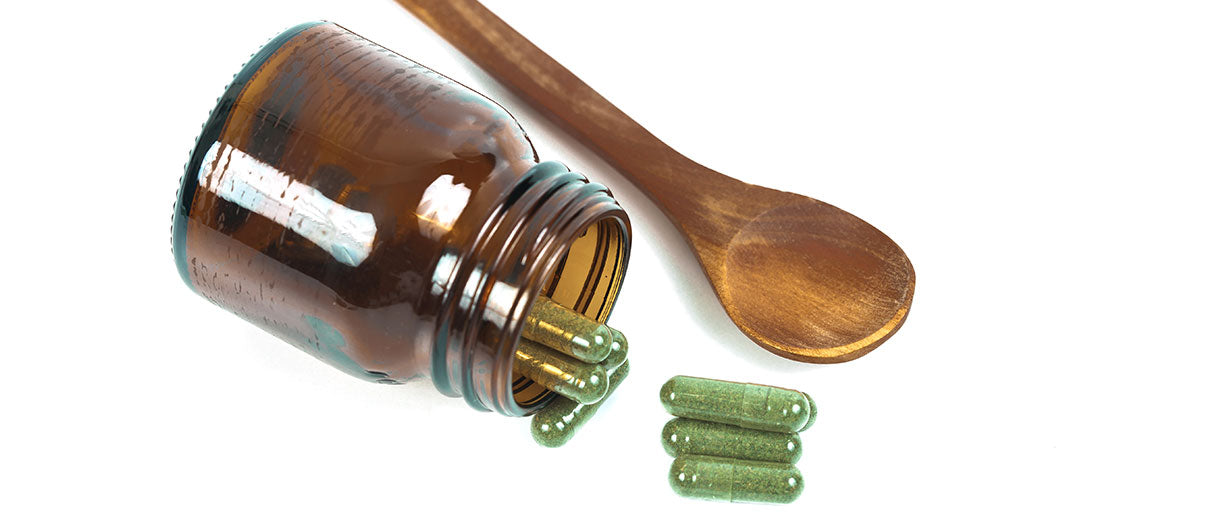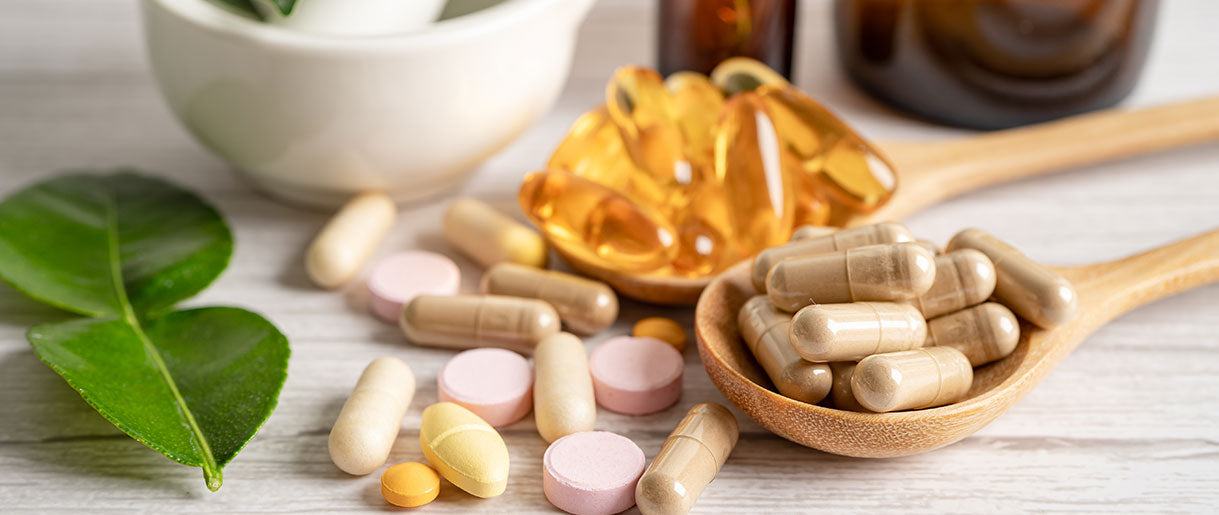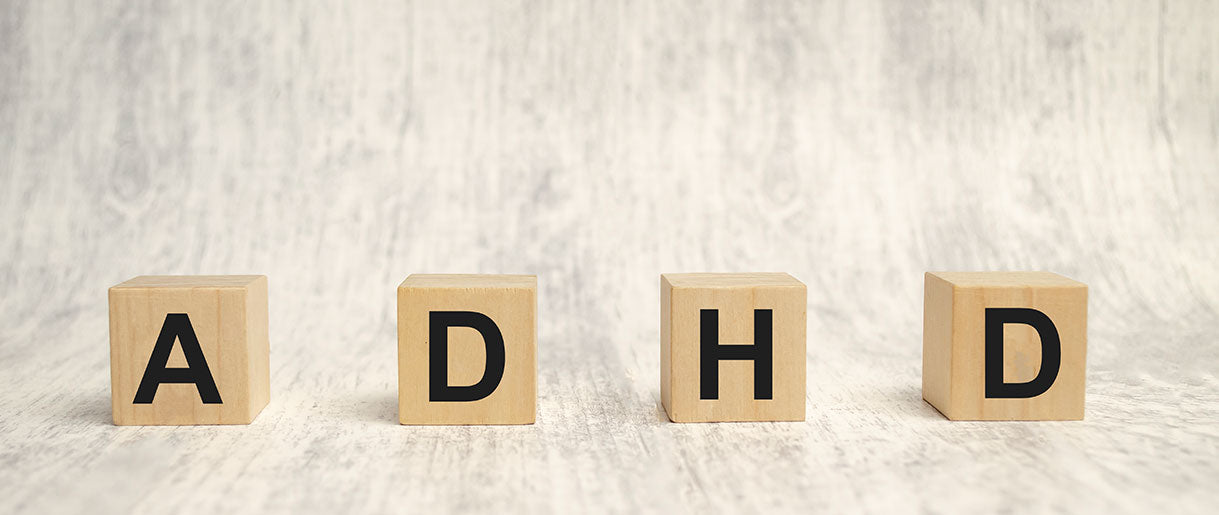Rhodiola, a natural herb long revered in traditional medicine, is gaining attention for its potential benefits in improving focus and reducing hyperactivity, core challenges faced by those with ADHD. But how does it do this? Let's dive in.
Emerging research suggests that Rhodiola works by balancing neurotransmitters in the brain, which play a crucial role in ADHD symptoms. It's thought to boost the levels of serotonin and dopamine, key players in regulating mood, focus, and energy levels. This balancing act could be particularly beneficial for ADHD, where these neurotransmitters are often out of sync.
But there's more to Rhodiola than just neurotransmitter regulation. Its stress-reducing properties may also help manage the anxiety and emotional dysregulation frequently associated with ADHD. By enhancing overall stress resilience, Rhodiola could provide a calming effect, making it easier to manage ADHD symptoms.
This article will explore the science behind Rhodiola's impact on ADHD. Read on to see how this herb could improve the life of someone with ADHD.
1. Balances Neurotransmitters
Ever wondered how Rhodiola Rosea, a natural ally, might help manage ADHD symptoms? It's all about balancing neurotransmitters in the brain.
This herb is believed to influence serotonin and dopamine, which are like the brain's conductors, orchestrating mood, focus, and energy levels.
These areas are particularly challenging for those with ADHD, where such balance is often off-kilter (1).
- Targeting the Brain's Chemistry: Rhodiola for ADHD isn't just a trend; it's about adjusting the brain's chemical balance (2), potentially improving cognitive function and focus.
- Addressing ADHD Symptoms Holistically: By influencing neurotransmitters, Rhodiola doesn't just target one aspect of ADHD; it offers a more rounded approach to improving ADHD symptoms, from mental fatigue to hyperactivity.
Rhodiola isn't just another supplement; it's a beacon of hope for improved ADHD symptoms.
As part of a broader ADHD treatment plan, which might include ADHD medication and other therapies, Rhodiola Rosea could play a pivotal role in enhancing brain health and overall well-being.
This makes adding this herb to a morning routine for ADHD an impressive idea.
2. Enhances Focus

Navigating through the fog of inattention that often accompanies Attention Deficit Hyperactivity Disorder (ADHD) can be a daily struggle. Here's where Rhodiola Rosea could play a pivotal role as one of the best nootropics for focus.
Known for its potential to boost neurotransmitter levels, this natural herb might be the key to enhancing focus and attention, which are core challenges for those with ADHD.
- Direct Impact on Concentration: Rhodiola's influence on neurotransmitters like dopamine and serotonin directly correlates with improved concentration, crucial for individuals with ADHD who often grapple with maintaining attention.
- Consistent Attention Span: Regular intake of Rhodiola may help sustain attention spans over more extended periods, a common hurdle in ADHD, thereby improving overall mental performance.
The beauty of using Rhodiola for ADHD lies in its natural approach to enhancing focus. This herb doesn't just offer a temporary fix; it targets the underlying neurotransmitter imbalances that affect concentration.
3. Reduces Hyperactivity
Rhodiola Rosea, often celebrated in complementary and alternative medicine, steps into the ADHD arena with a promising potential to tame hyperactivity.
This natural herb's knack for balancing neurotransmitters in the brain could be vital in managing the often energetic and impulsive behaviors associated with ADHD. Let's see how this herbal supplement might contribute to more controlled and focused behavior.
- Calming Hyperactive Tendencies: The balancing act of neurotransmitters due to Rhodiola may lead to calming effects, essential for those with ADHD who struggle with excessive energy and impulsivity.
- Improving Brain Function: Rhodiola can support better brain function by aiding in neurotransmitter regulation, allowing individuals with ADHD to navigate their day with less hyperactivity and more focus.
In the quest to manage ADHD, particularly when addressing hyperactivity, Rhodiola Rosea emerges as more than just an herbal supplement. It's a beacon of hope for those seeking alternative treatments that align with a more natural approach to health.
4. Reduces Stress
In the dynamic world of Attention Deficit Hyperactivity Disorder (ADHD) management, Rhodiola Rosea shines as a beacon for those seeking to ease the stress and anxiety often intertwined with ADHD.
Known for its stress-reducing properties (3), this natural herb offers a glimmer of hope for not just managing ADHD symptoms but also enhancing mental focus and emotional well-being.
- Calming Anxiety in ADHD: The calming properties of Rhodiola can be particularly beneficial in ADHD, where anxiety disorders are not uncommon. Its use could lead to decreased anxiety (4), making daily challenges more manageable.
- Enhancing Emotional Regulation: Emotional dysregulation is a hallmark of ADHD behaviors. Rhodiola's ability to enhance stress resilience might provide a much-needed grounding effect, contributing to better emotional balance.
Incorporating Rhodiola for ADHD treatment goes beyond merely addressing hyperactivity or inattention; it taps into the root of stress and anxiety that can exacerbate ADHD symptoms. This natural approach promises a dual benefit: managing ADHD symptoms while enhancing overall emotional health.
Optimizing Rhodiola Intake for ADHD: Timing, Dosage, and Tips

When it comes to using Rhodiola Rosea for ADHD, knowing how to take it can make all the difference. This natural herb, celebrated for its potential in managing ADHD symptoms, has specific nuances in terms of timing and dosage that can maximize its effectiveness.
Let's dive into the best practices for incorporating Rhodiola into your ADHD management routine.
- Finding the Right Dosage: The effective dosage of Rhodiola can vary based on individual needs and responses. Typically, doses range from 200 to 600 mg per day. However, it's crucial to start with a lower dose and gradually increase, monitoring your response.
- Timing is Key: The best time to take Rhodiola is in the morning and/or early afternoon. Since it can be stimulating, taking it later in the day might interfere with sleep patterns.
- Consistency for Best Results: Regular Rhodiola intake is essential for improving ADHD symptoms. It's not an instant remedy; consistent use over weeks or months may be necessary to experience its full benefits.
- Consult a Healthcare Professional: Before starting Rhodiola, especially if you're on ADHD medication or other treatments, it's vital to consult a healthcare provider.
- Quality Matters: Ensure you're getting high-quality Rhodiola supplements from reputable sources. The purity and concentration of the herb can significantly impact its efficacy.
- Monitor and Adjust: Pay attention to how your body reacts. If you experience any adverse effects or the symptoms don't improve, you may need to adjust the dosage or reconsider its use.
Incorporating Rhodiola for ADHD requires a balanced approach, respecting both the natural potency of the herb and the unique needs of your body.
With the proper dosage, timing, and quality, Rhodiola might be one of the complementary and alternative therapies that brings a significant difference in managing ADHD symptoms.
Patience, persistence, and professional guidance are essential to successfully integrating Rhodiola into your ADHD treatment plan.
Note: ADHD patients—including children with ADHD—already taking other ADHD medications or ADHD supplements should only use Rhodiola for ADHD after getting approval from their doctor. This can help improve ADHD symptoms without dangerous interactions or side effects.
Integrating Rhodiola Rosea with Comprehensive ADHD Solutions

When it comes to treating ADHD, especially ADHD children, combining Rhodiola Rosea with other well-researched solutions can lead to more holistic and effective outcomes. This isn't just about one herb or one approach; it's about creating a well-rounded strategy that addresses various aspects of ADHD.
- The Power of Essential Fatty Acids: Omega-3 fatty acids, a polyunsaturated fatty acid, are crucial for brain development and cognitive functions (5)—randomized clinical trials have confirmed their positive impact. Supplementing ADHD children's diets with these essential fatty acids, often found in fish oils, can complement the benefits of Rhodiola Rosea.
- Amino Acids and Mineral Supplements: Amino acids play a vital role in brain function. Combining Rhodiola with amino acid supplements and addressing iron deficiency (6) and other mineral deficiencies can further support brain health and cognitive improvement in children with ADHD.
- Beyond Herbal Supplements: While Rhodiola is a valuable herbal supplement, it's important to consider dietary supplements that support overall mental health and brain cell development—a good example here is Ginkgo Biloba, a top-rated nootropic for ADHD. You can also invest in a balanced diet rich in nutrients essential for brain health.
- Behavioral Therapies and ADHD:Behavioral therapies remain a cornerstone in treating ADHD. When combined with Rhodiola and nutritional support, these therapies can offer a more comprehensive approach to managing ADHD behaviors and symptoms.
For parents navigating the complexities of an ADHD diagnosis in their children, the journey can be overwhelming. Understanding that ADHD management often requires a multifaceted approach is crucial.
Integrating Rhodiola Rosea with essential fatty acids, amino acids, and other dietary supplements, alongside behavioral therapies, clinical recommendations, and even stimulant medications, can provide a more comprehensive treatment plan.
FAQs About Rhodiola For ADHD
When Should I Take Rhodiola For ADHD Symptom Relief?
The optimal time to take Rhodiola Rosea for ADHD symptom relief is typically in the morning or early afternoon. Since Rhodiola can have stimulating effects, taking it later in the day might interfere with sleep patterns.
This timing helps maximize its potential benefits on focus and energy levels during the day when managing ADHD symptoms is most crucial. However, individual responses may vary, so monitoring your reaction and adjusting the timing if needed is essential.
How Long Does It Take To See Improvements In ADHD Symptoms With Rhodiola?
The time it takes to see improvements in ADHD symptoms with Rhodiola Rosea can vary. Generally, however, individuals may start noticing changes within a few weeks to a month of consistent use.
However, it's important to remember that responses can differ based on individual factors. Some may experience benefits sooner, while others might need longer. Consistent daily intake is key to observing the full effects of Rhodiola on ADHD symptoms.
Can Rhodiola Be Taken With Food Or On An Empty Stomach?
Rhodiola Rosea can be taken either with food or on an empty stomach. The choice largely depends on individual tolerance and preference.
Some people may find that taking Rhodiola with food helps to avoid potential stomach discomfort, while others might prefer taking it on an empty stomach for faster absorption. It's advisable to start with one method and switch if you experience any digestive issues or discomfort.
Key Takeaways
As we wrap up our exploration of Rhodiola Rosea for ADHD, it's clear that this natural herb holds promising potential in the realm of alternative treatments.
From balancing neurotransmitters and enhancing focus to reducing hyperactivity and stress, Rhodiola emerges as more than just a supplement; it represents a beacon of hope for those seeking a holistic approach to managing ADHD symptoms.
Remember, the journey with Rhodiola is personal and unique to each individual. It's about finding the right balance, the optimal dosage, and integrating it seamlessly into your daily routine. While Rhodiola can be a powerful ally, it's essential to approach it as part of a comprehensive treatment plan under healthcare professionals' guidance.
We're curious to hear about your experiences and thoughts. Have you tried Rhodiola for ADHD? What changes have you noticed? Share your stories in the comments below.
References
- Dopamine-serotonin interactions in attention-deficit hyperactivity disorder (ADHD), (1), https://pubmed.ncbi.nlm.nih.gov/18772050/
- Phenolic Compounds of Rhodiola rosea L. as the Potential Alternative Therapy in the Treatment of Chronic Diseases, (2), https://www.mdpi.com/1422-0067/24/15/12293
- Stress management and the role of Rhodiola rosea: a review, (3), https://www.tandfonline.com/doi/full/10.1080/13651501.2017.1417442
- The Effectiveness of Rhodiola rosea L. Preparations in Alleviating Various Aspects of Life-Stress Symptoms and Stress-Induced Conditions—Encouraging Clinical Evidence, (4), https://www.ncbi.nlm.nih.gov/pmc/articles/PMC9228580/
- Effects of Omega-3 Polyunsaturated Fatty Acids on Brain Functions: A Systematic Review, (5), https://www.ncbi.nlm.nih.gov/pmc/articles/PMC9641984/
- Peripheral iron levels in children with attention-deficit hyperactivity disorder: a systematic review and meta-analysis, (6), https://www.nature.com/articles/s41598-017-19096-x










Let Us Know Your Comments